New Hope: Improving Livestock Business Models within and across Borders


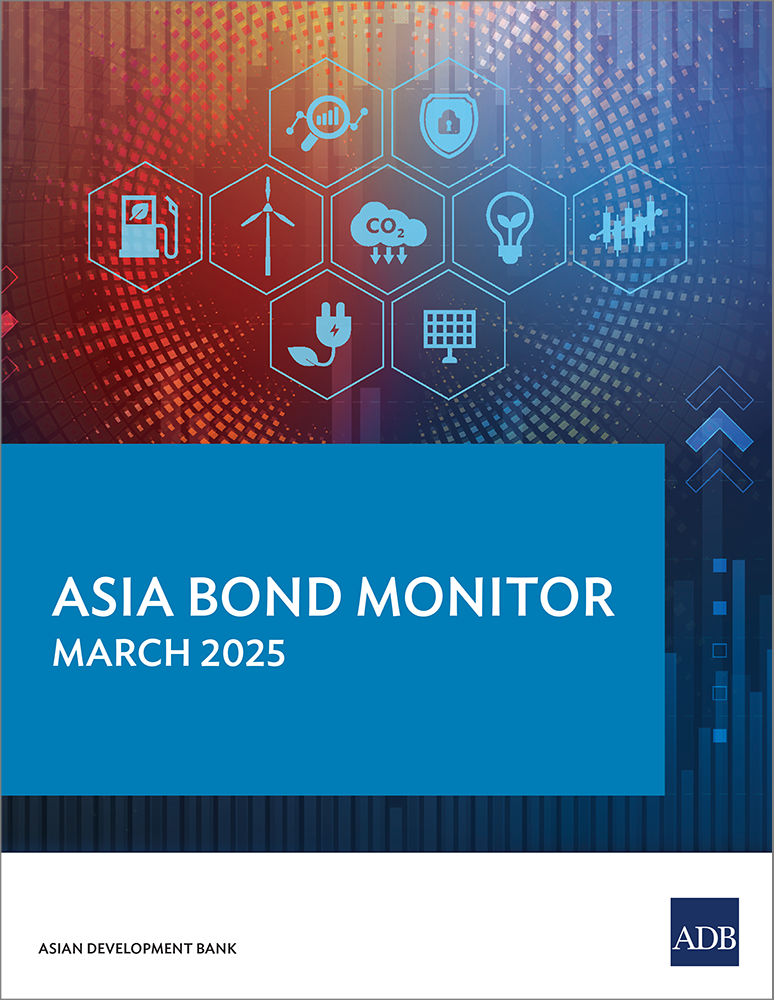


Technical and Vocational Education and Training (TVET) is essential for economic development, supplying the skills required for the evolving labor markets. By aligning vocational education with industry needs, TVET enhances employability, reduces skills gaps, and boosts productivity. It plays a critical role in fostering inclusive growth, improving workforce quality, and ensuring a competitive edge in the global economy.
To support learning from a robust model of TVET development, ADB-PRC Regional Knowledge Sharing Initiative (RKSI) has financed a knowledge exchange for ten government officials and vocational school leaders from five Central Asian countries (Azerbaijan, Georgia, Turkmenistan, Tajikistan, Uzbekistan) to Guangxi Zhuang Autonomous Region, located in southern People’s Republic of China (PRC) on 9–12 December 2024. The study tour was organized by Sectors Group Human and Social Development Sector Office (SG-HSD) and Central Asia Regional Economic Cooperation Program (CAREC) and also brought seven ADB sector specialists from Manila headquarters and several country offices. As a key gateway between PRC and Southeast Asia, Guangxi has been at the forefront of cross-border cooperation and benefitted from ADB-financed programs to enhance its TVET system. The knowledge exchange provided an opportunity to explore PRC’s best practices in modernizing its TVET system, focusing on industry partnerships, work-based learning, and income-generation activities, with insights from ADB-supported programs.
Policies and ADB’s Support on Guangxi’s TVET System
Guangxi has made significant policy efforts in advancing TVET, including the establishment of vocational education reform pilot zones in collaboration with the Ministry of Education in 2009–2013. In 2019, the region launched a program to build high-level vocational colleges, known as the “Double Excellence, Double High” initiative, which focuses on improving the quality of education and training. In 2023, Guangxi became a pilot province for the Ministry of Education’s modern vocational education system, solidifying its commitment to aligning TVET with industry needs.
A key driver of Guangxi’s progress was the Guangxi Modern TVET Development Program (2017–2022), co-financed by ADB and KfW Bankengruppe. This results-based lending program focused on improving the relevance, quality, and inclusiveness of TVET education. By aligning curricula with local labor market demands in the region’s priority growth sectors, the program helped equip students with practical skills, thereby improving employment opportunities, reducing the “skills gap” and driving regional economic development. The program received the 2021 ADB Best Performance Loan Project Award and benefited over one million students.
With the program now completed, its achievements have broader implications as a regional public good. Through facilitating cross-border knowledge exchange, particularly in areas like industry partnerships, curriculum development and the creation of international training bases, Guangxi has shared valuable lessons with neighboring countries.
Central Asia’s Challenges on TVET
Acute shortages of well-trained and job-ready workforce hinder Central Asian countries’ economic growth. Low quality of vocational skills, a mismatch between education and labor market needs, outdated infrastructure, and resource constraints limit the region’s ability to build a competitive workforce to align with the growing market demand. All Central Asian countries are taking measures to enhance their TVET systems, improve the quality and relevance of education, and develop better linkages with industry. Guangxi’s successful experiences, particularly in aligning TVET curricula with labor market demand and fostering cross-border cooperation, made it an ideal model to learn from.

Guangxi’s Approach to TVET Development
Guangxi’s modernization of its TVET system stands out not only for its alignment with local industry needs but also for its emphasis on international cooperation—particularly with ASEAN countries. This strategic positioning, due to Guangxi’s proximity to Southeast Asia, has allowed the region to serve as a key platform for cross-border educational and technical exchanges, closely linked to supporting mutual economic benefits.
Among the key initiatives driving Guangxi’s success in TVET are:
Conclusion
Guangxi’s experience in modernizing its TVET system offers valuable lessons for Central Asia and beyond. The success of the ADB-supported Guangxi Modern TVET Development Program highlights the importance of aligning vocational education with industry needs, fostering international cooperation, and improving educational quality. As Central Asia faces similar challenges, Guangxi’s approach may serve as a model for enhancing TVET systems, promoting cross-border knowledge exchange, and developing skilled workforce.
Participants’ reflections:
“Azerbaijan can benefit from applying Guangxi’s best practices to improve vocational education by collaborating with both local industries and international partners, particularly in areas such as green energy and technological innovations. All these aspects provide valuable potential for adaptation and application in Azerbaijan, where reforms in vocational education and training are ongoing.”
Rustam Abdullaev, Head of the Vocational Education Policy Division, Ministry of Science and Education, Azerbaijan
“The knowledge gained about the Chinese TVET system significantly expanded our horizons. I was especially impressed by the acquaintance with the dual education system in colleges in Nanning and Guilin. We are grateful for the knowledge, which will certainly help us in further developing our systems.”
Myrad Kerjayev, Head of Ashgabat Secondary Professional School of Tourism, Turkmenistan
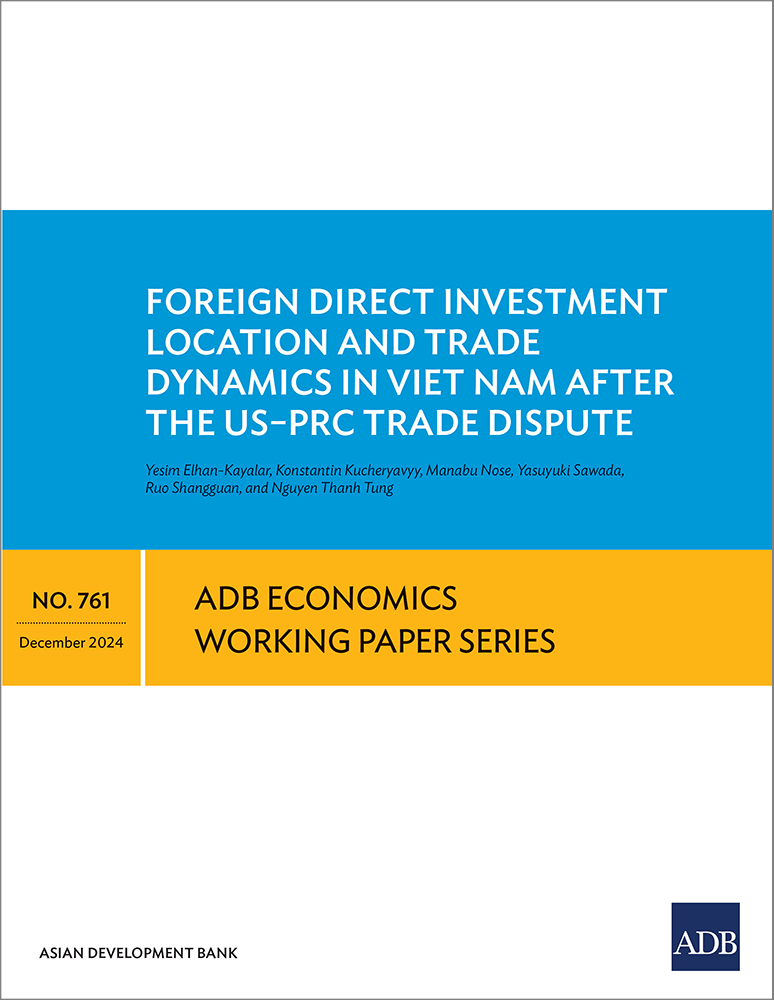
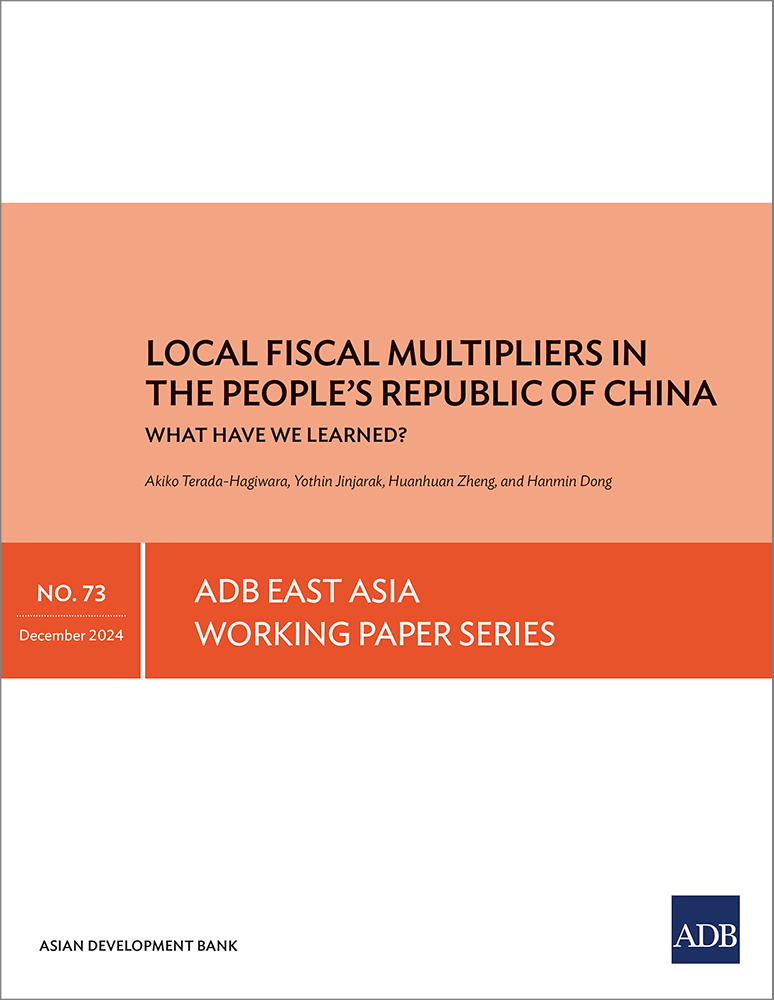

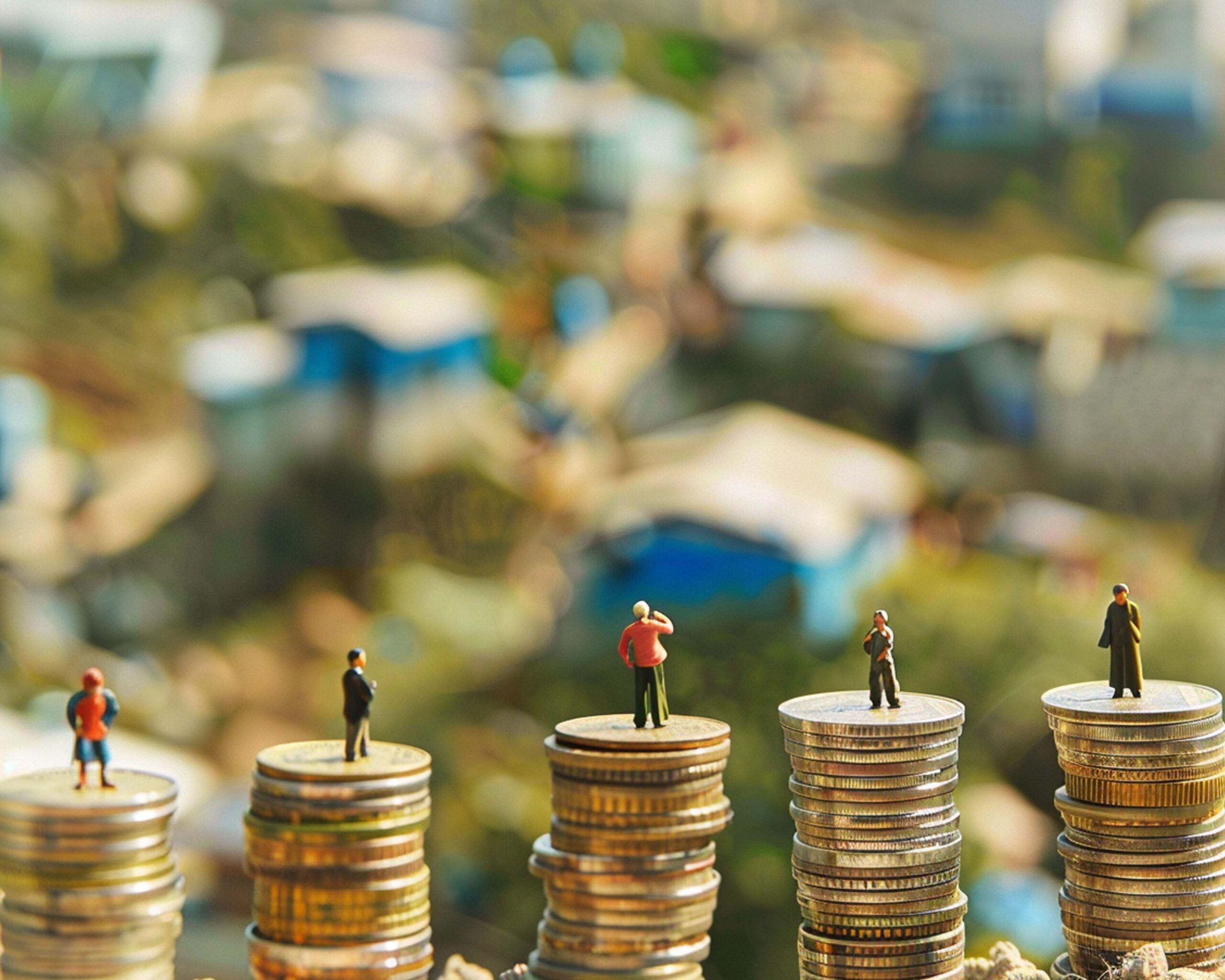
In an increasingly interconnected world, regional public goods (RPGs) provide a compelling framework for countries to cooperate for sustainable development. RPGs include a wide array of assets and services to promote economic growth, social welfare, and environmental sustainability.
Public goods can be placed in three main categories: economic public goods, social public goods, and environmental public goods.
Economic public goods are those that are directly related to economic growth and industrialization, such as infrastructure for transportation, communication, energy, and irrigation systems. Economic institutions, regulatory frameworks, and government macroeconomic policies can also be included.
Social public goods include legal systems, public health and epidemic prevention, social safety nets, public security, museums, public libraries, and parks.
Environmental public goods include environmental protection systems and policies, ecological restoration, renewable energy development, and climate change mitigation and adaptation programs.
Education, scientific research, technology, innovation, and all kinds of knowledge are all linked to these public goods.
Developing countries share common interests and needs for public goods because they face similar problems at similar stages of development. Often, they have common goals and priorities for economic development, such as poverty relief, industrialization, increasing productivity, urbanization, and reduction of income disparities. Here, cooperation between developing countries may create important regional public goods for joint development.
For example, regional and international transportation as well as communication networks improve connectivity among countries, enlarge the market for all, and in turn, improve the efficiency of national infrastructure systems.
Regional trade and investment agreements facilitate economic development and cooperation of the countries involved in the treaty. The Regional Comprehensive Economic Partnership treaty is an example of how all parties involved can benefit through regional cooperation.
Meanwhile, regional public health systems and epidemic prevention mechanisms are key to minimizing the pandemic risks for people in the region and beyond.
Regional networks can also play an important role in natural disaster management and mitigation as well as cross-border environment protection and ecological preservation (one example would be ADB’s Regional Flyway Initiative).
The Paris Agreement is a global public good that aims to tackle the challenge of climate change. However, its benefits can truly be realized through regional cooperation. A specific area for regional collaboration is energy transition through which governments can utilize latest technologies to reduce carbon emissions.
Global public goods can also be promoted through regional cooperation on cyber security and Artificial Intelligence (AI).
The provision of global public goods requires coordination between regional and global institutions to facilitate project designs, financing, and technical assistance. This facilitation can be done through a regional mechanism or within an international framework.
Knowledge sharing is imperative for joint development. Particularly essential is knowledge of recent development practices and experience in all countries, including policies implemented, technologies applied, and business models used and the problems that arise when facing new conditions. People from diverse backgrounds will benefit immensely through such knowledge exchanges. Every developing country, regardless of its size and levels of productivity, can offer some good experiences or lessons for others to learn and benefit from. A useful example is the influence of Bangladesh’s microfinance model.
The PRC is still a developing country, in terms of both gross national income per capita and industrial productivity. However, as a large economy, the PRC has a special responsibility to contribute to regional development.
Four important initiatives for economic development of the region deserve mention.
The first pertains to regional connectivity infrastructure (road, railway, ports, airports and telecommunications), which the PRC has facilitated. Better connectivity means greater market access and higher productivity, particularly for inland countries. The PRC-Europe rail route has greatly stabilized global supply chains in the wake of conflict disrupting vital shipping lanes in the Red Sea.
The second involves industrial development facilities, such as industrial parks. In recent years, the PRC has engaged in developing “two parks in two countries” mechanisms with Indonesia, Malaysia, Thailand, and Viet Nam, which provide mutual common goods for the companies from “the other country.”
The third initiative is the technology and business model for energy transition. Knowledge sharing in this regard will not only contribute to the battle against climate change, but also provide new ways to help countries increase their capacity for energy generation for the next stage of development.
The fourth initiative is cross-border environment protection and ecological system preservation for sustainable development. It is in the common interest of all countries in our region and beyond to prevent damage of our ecological systems.
In principle, all public goods are good and beneficial for everyone, one way or another. However, for countries at different stages of development, their priorities may be different.
For low-income countries, the most urgent need is more economic public goods related to their industrialization and economic structural upgrade, such as physical infrastructure and industrial facilities. Economic growth will enable these countries to finance their social and environmental projects through their own revenues and participate effectively in the provision of regional and global public goods.
Countries with higher incomes and productivity can help provide social and environmental public goods, such as on ecological restoration and climate change.
Financial resources from donor countries should be directed toward economic public goods, rather social and environmental projects in low-income developing countries. This will prevent developing countries from becoming reliant on international aid for long periods and instead, encourage them to develop their own financial strength to pay for social and environmental goods. “Infrastructure deficits” in developing countries should be interpreted as being part of broader deficits of economic public goods.

Director, National Economic Research Institute
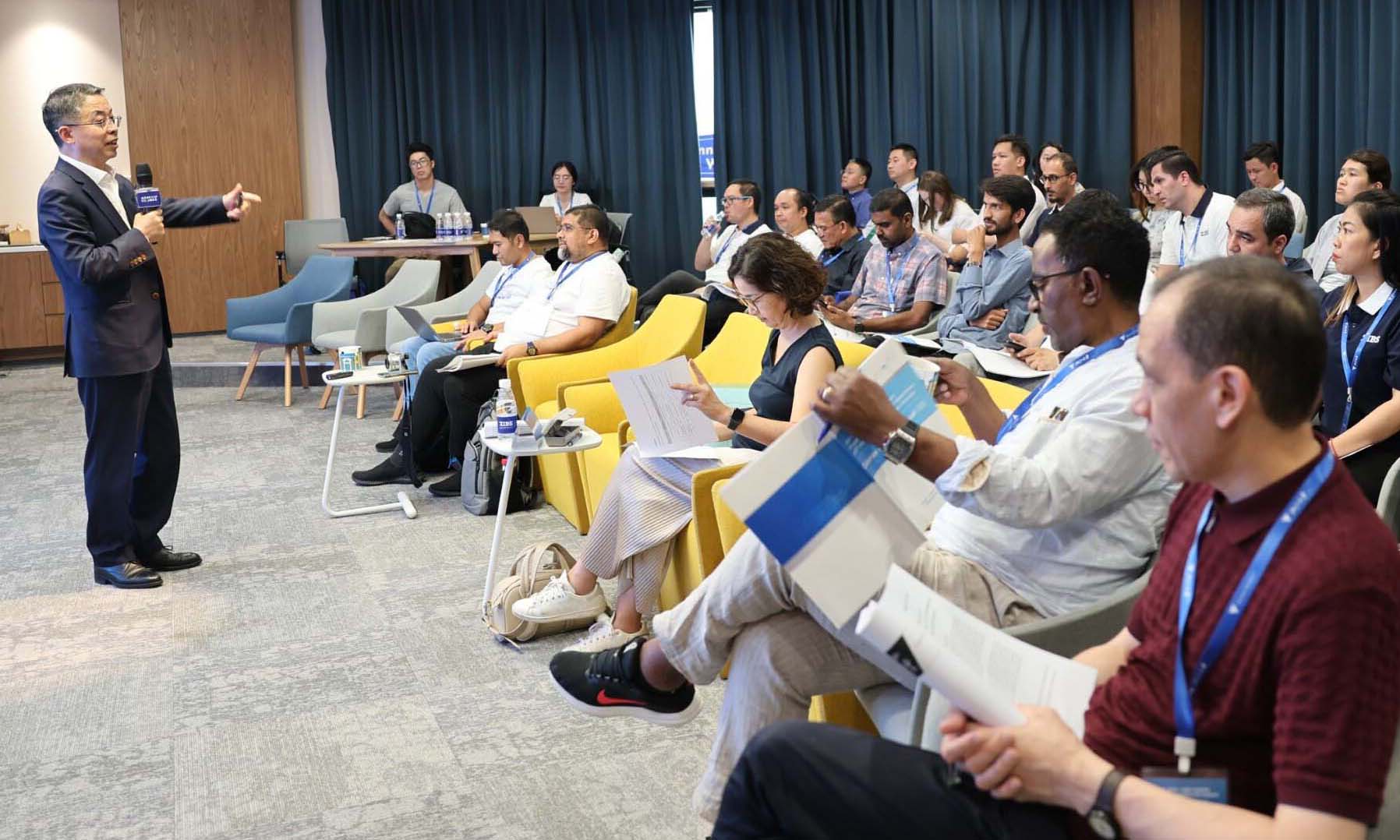
Explore the transformative potential of digital technologies through the lens of a joint CAREC-PRC and ASEAN-PRC Digital Economy Workshop. Hear from policymakers as they share their experiences, challenges, and strategies for harnessing the power of the digital economy for inclusive growth and regional competitiveness.
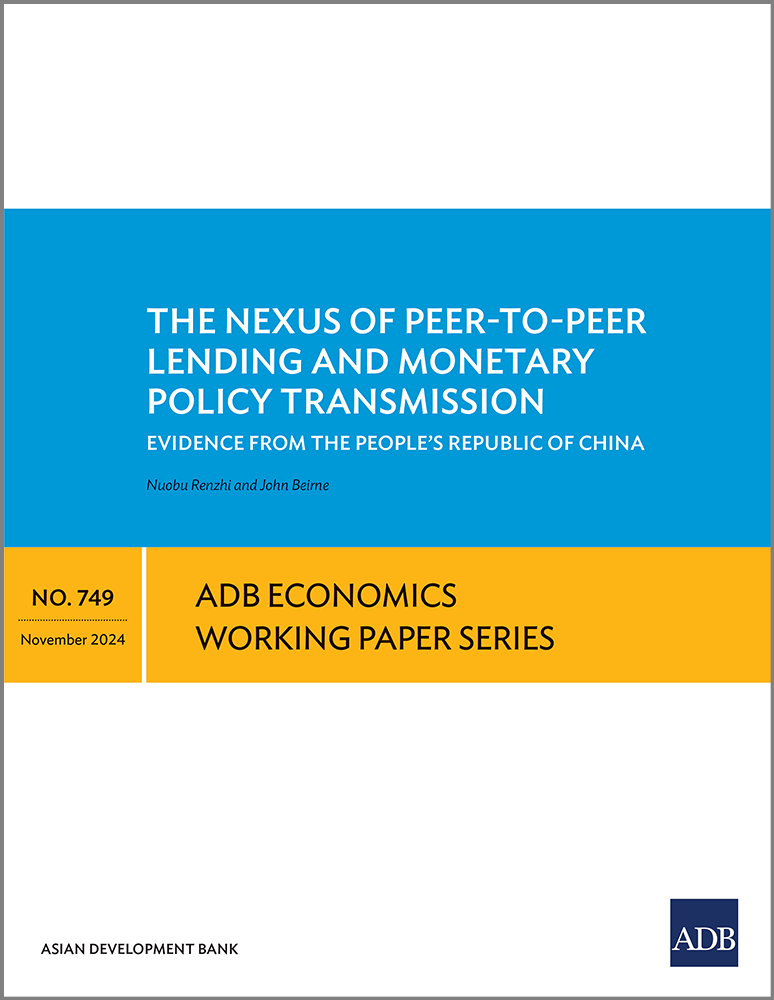
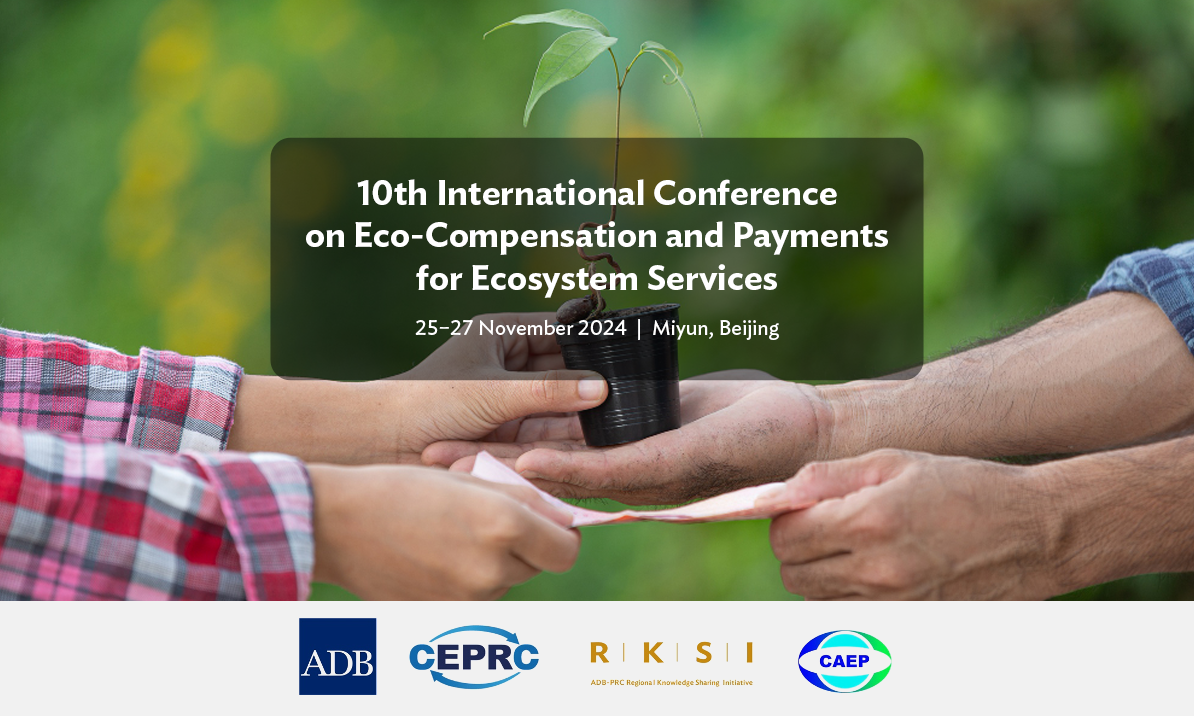

Eco-compensation is a policy mechanism which aims to mitigate the negative environmental impacts of human activities by implementing measures to offset or compensate for ecological damage caused by those activities. Examples of eco- compensation include fiscal transfer, regional cooperation, and market incentives.
Over the past two decades, eco-compensation has seen significant development and innovative application in the People’s Republic of China (PRC). Pilot projects established at the regional scale have demonstrated encouraging results across the country. The State Council proclaimed the Eco-compensation Regulation in April 2024, which provided the foundation for eco-compensation to be formally adopted and integrated into broader incentive mechanisms to achieve sustainability, supported by appropriate regulatory and legal basis.
The Asian Development Bank (ADB) has supported the development of eco-compensation in the PRC with technical assistance and capacity building support since 2009. This has predominantly been through facilitating policy dialogue and technical cooperation with the National Development and Reform Commission (NDRC) on a range of projects and policy reform initiatives, including eco-compensation policy, legislation, market-based instruments, performance evaluation, and links with wider poverty reduction initiatives.
This year’s conference is a regional flagship event led by the ADB’s Agriculture, Food, Nature and Rural Development Sector Group (AFNR) to promote collaboration among public, private, and civil sectors for sustainable conservation finance, discuss innovative financing methods and challenges, strengthen networks among eco-compensation and PES stakeholders, and facilitate knowledge sharing among countries including the PRC. This year’s conference will also include a focus on methane emissions reduction in agriculture for enhanced food security and climate action.
This year’s 10th International Conference on Eco-compensation and PES will review the progress of eco-compensation in the PRC and PES globally and has a thematic focus on market-based and user-paid mechanisms and legal framework for eco-compensation and PES.
Join the webinar here.
Passcode: WEB221124
Excursion:
• Miyun Reservoir Exhibition Museum
• Jixing Agricultural Park built on the wildlands
• Earth System Simulation Facility
• Chinese Bee Protected Area in Fengjiayu
| Time | Program |
|---|---|
| 09:00 – 11:00 | Opening Plenary and Keynote Speech Chair: Yu Haibo, Governor of Miyun District Government, Beijing Municipality |
| 09:00 – 09:40 | Opening Remarks
|
| Keynote Presentations | |
| 09:40 – 10:00 | Advances in Policy and Legislation of Eco-compensation in the PRC Tong Zhangshun, Director General, Regional Revitalization Department, National Development and Reform Commission (NDRC) |
| 10:00 – 10:20 | China’s Approach and Innovation in Eco-compensation Wang Jinnan, Honorable Dean, Chinese Academy of Environmental Protection, and Academician of Chinese Academy of Engineering |
| 10:20 – 10:40 | Scaling up natural capital investment in the Asia-Pacific Region Qingfeng Zhang, Senior Director, Agriculture, Food, Nature and Rural Development Sector Office, Asian Development Bank |
| 10:40 – 11:00 | Coffee/Tea Break |
| 11:00 – 12:00 | Thematic Session 1: Advancement in Eco-compensation and payments for Ecosystem Services Chair: Sanath Ranawana, Director, Natural Capital and Climate, Agriculture, Food, Nature and Rural Development Sector Office, ADB |
| 11:00 – 11:20 | Natural Capital Accounting for Ecosystem Conservation Chunquan Zhu, Head, China Nature Initiatives, World Economic Forum |
| 11:30 – 11:45 | Water funds for Watershed Protection | Daniel Shemie, Director, Resilient Freshwater (Water-fund), TNC |
| 11:45 – 12:00 | Panel Discussion and Questions and Answers Innovation, Legislation, and Replicability of China’s Eco-Compensation Moderated by Sanath Ranawana, Director, Natural Capital and Climate, Agriculture, Food, Nature and Rural Development Sector Office, ADB
|
| 12:00 – 13:30 | Lunch Break |
| 13:30 – 15:25 | Thematic Session 2: Market-based Eco-compensation Chair: Au Shion Yee, Principal Water Resources Specialist, Agriculture, Food, Nature and Rural Development Sector Group, ADB |
| 13:30 – 13:50 | Green transformation with green finance Ge Xiangqun, Deputy General Manager, Operation Department, China Development Bank |
| 13:50 – 14:10 | Market based nature finance Zhang Anping, Deputy General Manager, National Green Development Fund |
| 14:10 – 14:25 | AIIB innovation in investment in nature | Xie Chunping, Climate Economist, Economics Department, Asian Infrastructure Investment Bank |
| 14:25 – 14:40 | Market Instruments to Invest Ecosystem Protection and Restoration Callum Douglas, Senior Strategy Consultant, Nature and Biodiversity Strategy, Policy and Budget Department |
| 14:40 – 14:55 | Biodiversity credit mechanism assisting high-quality development of nature markets Chen Yuanzhe, Secretary General, Chinese Institute of Green Carbon |
| 14:55 – 15:25 | Panel Discussion and Questions and Answers Market-based Eco-Compensation and PES: Viability and Necessity Moderated by Mingyuan Fan, Principal Water Resources Specialist, Agriculture, Food, Nature and Rural Development Sector Group, ADB,
|
| 15:25 – 15:40 | Coffee/Tea Break |
| 15:40 – 18:00 | Thematic Session 3: Eco-Compensation with Charity Refund Chair: Song Yuanyuan, Director, Regional Revitalization Department of NDRC |
| 15:40 – 15:55 | Public involvement in eco-compensation Chen Peng, Secretary General, China Green Foundation |
| 15:55 – 16:10 | Environmental charity foundation development and eco-compensation in China Liu Chunlong, Secretary General, China Environmental Protection Foundation |
| 16:10 – 16:25 | Environmental foundation financing: international perspectives and implications for China and other DMCs Ren Wenwei, Director of Water Practice & Head of Shanghai Office, WWF (Switzerland) China |
| 16:25 – 16:35 | Question & Answers |
| 16:35 – 16:55 | Financing Innovations in nature conservation Zhu Da, Country Director, China Program, The Nature Conservancy |
| 16:55 – 17:15 | The Practice on Civil Protected Areas by The Paradise International Foundation Wang Dezhi, Chief Scientist, The Paradise International Foundation |
| 17:15 – 18:00 | Panel Discussion and Questions and Answers Eco-compensation with Charity Fund and Public Participation Moderated by Song Yuanyuan, Director, Regional Revitalization Department of NDRC
|
| 18:00 – 20:00 | Dinner |
| Time | Program |
|---|---|
| 09:00 – 11:30 | Thematic Session 4: Environmental Protection Embedded in Development Chair: Sun Yinhong, Country Program Coordinator, IFAD China Office |
| 09:00 – 09:15 | Ecological protection and compensation in hydropower development Miao Yongbao, Deputy General Manager, Yangtze Three Gorges Investment Corporation |
| 09:15 – 09:30 | Protected areas financing with user-pay mechanisms Teuanchay Phongkhamphanh, Deputy Head of the Protected Area Management Division of the Department of Forestry, Laos |
| 09:30 – 09:45 | Payments for ecosystem services in India: Case Studies Bhagirath Behera, Professor (Economics), Indian Institute of Technology |
| 09:45 – 10:00 | Investment in nature: innovations in the GMS Liu Guohua, Director, Sustainable Energy and Environment Department, Mekong Institute |
| 10:00 – 10:15 | Market-based Yongding River Watershed Management for Ecological Protection and Economic Development Qiao Shijiao,Young Professional, China Water Resources Beifang Investigation Design & Research Company (BIDR), MWR |
| 10:15 – 10:30 | Tea break |
| 10:30 – 10:45 | Green financing in agriculture and rural development: local experiences Hu Faqiang, Deputy Director General, Huangshan Development and Reform Commission |
| 10:45 – 11:00 | Water fund innovation in Qingshan Village, Zhejiang Province Zhang Zhenwei, Vice Governor, Yuhang District, Hangzhou of Zhejiang Province |
| 11:00 – 11:15 | Comprehensive eco-compensation schemes in Jiangkou Yang Jian, Vice Governor, Jiangkou County, Guizhou Province |
| 11:15 – 11:30 | Eco-compensation innovation in Shangarila Ju Yandong, Mayor, Shangerila, Yunnan Province |
| 11:30 – 11:50 | Closing Session Chair: Li Xiaotao, DDG, Beijing Municipal Development and Reform Commission (BDRC) |
| 11:30 – 12:00 | Closing Remarks
|
| 12:00 – 13:30 | Lunch and closing of conference |
| Time | Program |
|---|---|
| 13:30 – 17:45 | Final Review Workshop for (i) TA 6605-PRC: Yellow River Eco-Compensation Mechanism and (ii) TA 6945-PRC: Eco-Compensation Mechanism for Protected Areas with a Focus on National Parks Project Venue: Venue: Meeting Room 1, Conference Hall Mission Leader: Au Shion Yee; Analysts: Francesca Noelle Cimacio (TA 6605) and Daisy Gavina (TA 6945) |
| 13:30 – 15:30 | TA 6605 presentation and discussion |
| 15:30 – 15:45 | Coffee/Tea break |
| 15:45 – 17:45 | TA 6945 presentation and discussion |
| Time | Program |
|---|---|
| 13:30 – 17:45 | Final Review Workshop for TA 6995-PRC: Research on Methane Emission Reduction in Agriculture Venue: Venue: Meeting Room 2, Conference Hall Mission Leader: Dustin Schinn; Analyst: Erika Joy Arcillas Participants: MARA, ADB, Consultants, and invited representatives |
| 13:30 – 15:30 | TA presentation and discussion |
| 15:30 – 15:45 | Coffee/Tea break |
| 15:45 – 17:45 | TA presentation and discussion / wrap-up |

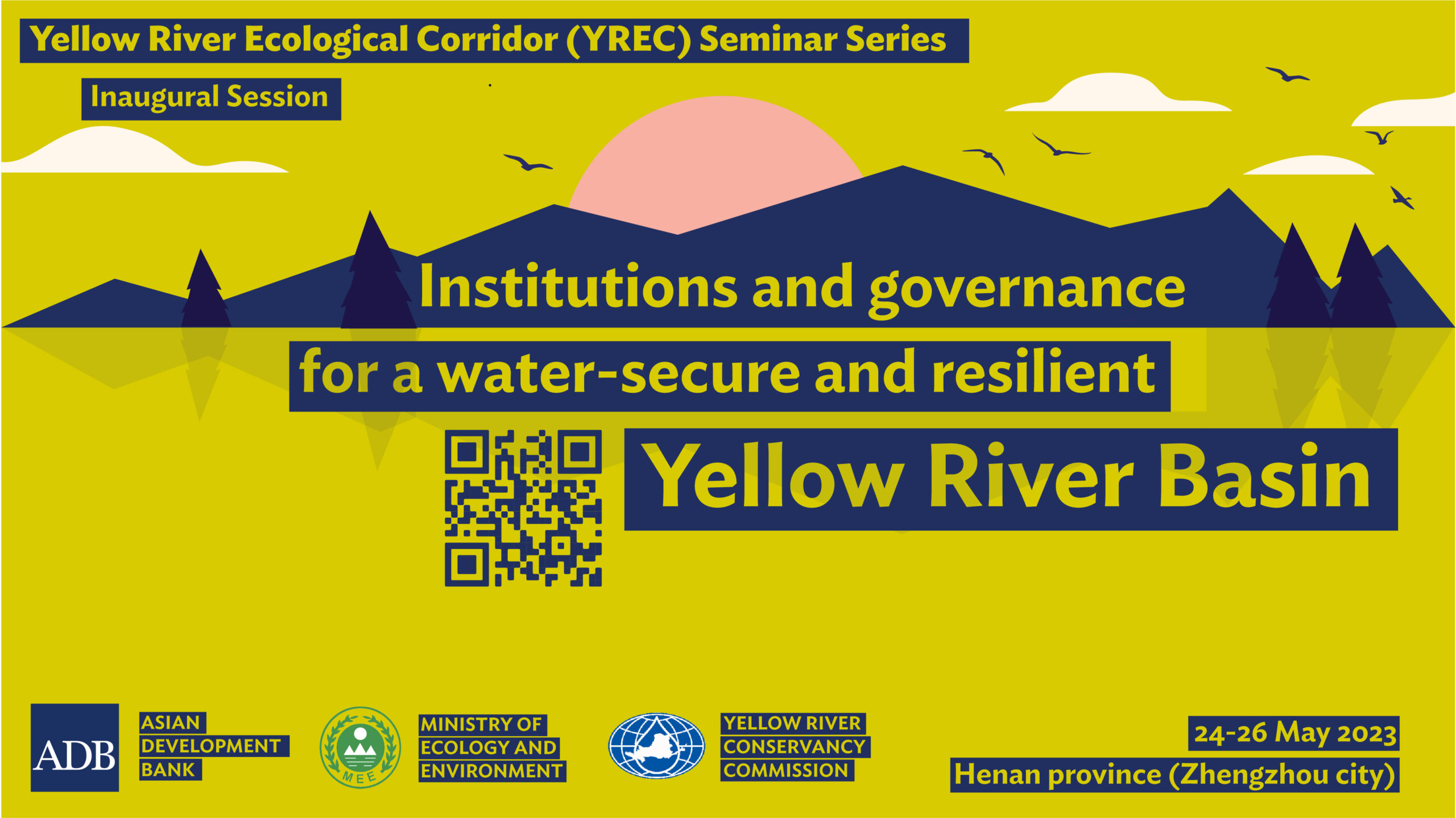
The Yellow River Basin is one of People’s Republic of China’s (PRC) most important water sources, supplying water to more than 420 million people and supporting agriculture, hydropower, and industrial production. However, this precious resource is threatened by a range of factors, including population growth, urbanization, and climate change, requiring action to ensure sustainable, safe and resilient water resources management. It is important to understand the challenges facing the Yellow River Basin and the main drivers of water scarcity. For example, rapid urbanization has increased pressure on water resources, and climate change has led to changes in precipitation patterns and increased water variability. At the same time, increasing demand for water for agriculture and industry has led to overexploitation and pollution of water resources, contributing to a decline in water quality and quantity.
The Asian Development Bank (ADB) is supporting the PRC Government to strengthen the sustainable management of natural capital in the PRC’s second largest river basin. The Yellow River Ecological Corridor (YREC) Program was established in 2020 adopting a comprehensive ecosystem-based management approach for water resources and land management by considering the river basin as an ecological corridor. The program is being implemented with the support from the following PRC Government agencies involved with resource management and economic development of the Yellow River Basin: (i) the Yellow River Conservancy Commission (YRCC); (ii) the Ministry of Ecology and Environment (MEE); (iii) Foreign Economic Cooperation Center, Ministry of Agriculture and Rural Affairs; (iv) Ministry of Water Resources (MWR); National Development and Reform Commission (NDRC); (v) National Forest and Grassland Administration; (vi) Nine provinces in the Yellow River basins;(vii) Chinese Academy of Science and other academic institutes; and (viii) private sectors and NGOs.
Balancing economic growth and sustainable development in the Yellow River basin is a challenging task. Against this background, the YREC builds on three key principles: (i) protect the basin’s fragile ecological environment, (ii) address the severe condition of the water resources and natural capital (balancing use and preservation), and (iii) promote high-quality green development and sustainable livelihoods. The YREC includes a program of lending, non-lending, and policy interventions across four main thematic areas, including: (i) natural resources management and biodiversity conservation, (ii) climate-resilient and sustainable smart agriculture, (iii) climate change mitigation and adaptation, and (iv) integrated urban-rural green development.
The recent event during the United Nations Water Conference in New York (23 March 2023) on Resilient Rivers to Healthy Coasts for People and the Planet: An Integrated River Basin Management Approach saw ADB, development partners, and PRC government counterparts, such as the MWR, reaffirm their commitment to the global 2030 water agenda. Guoying Li, Minister of Water Resources, and Woochong Um, Managing Director General of the ADB, framed the session and jointly emphasized the importance of ADB’s technical assistance, continued collaboration on policy dialogue, joint knowledge work to address the pressing water challenges in the PRC and sharing solutions through south-south cooperation in the region with other ADB regional member countries.
YREC Seminar Series objectives
Objectives of the Henan onsite hybrid seminar (3 days)
The onsite seminar is hosted by ADB and co-hosted by YRCC and MEE, with external participation of sector relevant PRC agencies and international experts. The objectives of this seminar are to:
Location: Onsite – Henan Province (Zhengzhou city), hybrid (online participation for Day 1 and Day 3)
Join via Zoom: https://adb-org.zoom.us/j/93414545175?pwd=QjJvU21tcS82eEFDTHFyVUFHc0UwZz09
Meeting ID: 934 1454 5175
Passcode: YREC230524
International examples have demonstrated that a holistic approach to water resources management within an appropriate political, institutional, and regulatory environment can ensure safe, resilient, and sustainable water resources management for all stakeholders in a basin.
With the right approach and continued efforts, it is possible to ensure a future where the Yellow River Basin continues to provide water security to the millions of people who depend on it. This requires strengthening institutional cooperation among various stakeholders, including government agencies, businesses, and communities, to ensure safe, resilient, and sustainable water resources management for the basin’s people and its natural resources. This can be achieved through effective policies and strategies that generate institutional momentum, streamline processes, and encourage data sharing, with the support of multilateral financial institutions such as ADB.
To ensure safe, resilient, and sustainable water resources management in the basin, adaptive policies and regulations must be developed within this cooperative environment, including the adoption of innovative water-saving technologies, best practices, and nature-positive investments.
The Yellow River Protection Law, drafted by different line ministries and several departments is a crucial cornerstone to achieve water security across the basin. It covers all county-administrative regions within the seven provinces and two autonomous regions within the catchment area and aims to protect the environment and water resources, prevent water disasters, and promote sustainable development. While the Yellow River Protection Law puts forward important components to achieve safe, resilient, sustainable, and integrated water resources management in the Yellow River Basin, stakeholders continue facing leadership, technical capacity, investment, and coordination gaps. To help overcome these limitations, the Ministry of Water Resources and the Ministry of Ecology and the Environment have put forward planning instruments for the = development and management of the Yellow River’s water resources. Such plans aim to improve the basin’s management, including water conservation and disaster risk management, significantly through an integrated approach and proper coordination among provincial governments and local agencies by 2030.
Including the hydraulic laboratory downstream of the Yellow River, the Yellow River basin museum, the embankment to protect the river from floods, and Xinshan city along the Yellow River.
Adaptation and resilience play a key role in reducing exposure and vulnerability to climate change. Climate responses and adaptation options, along with their enabling conditions and synergies with mitigation, can contribute to achieving climate resilient development. 7 Use of integrated and multisector solutions help differentiate responses based on climate risks, increases the feasibility and effectiveness of adaptation options in multiple sectors, while addressing social inequalities. The PRC’s Ministry of Ecology and Environment (MEE) drafted the National Strategy for Climate Adaptation (NSCA) 2035. The strategy will strengthen policy coordination, improve governance mechanisms for decision-making processes, advance knowledge, and tools for climate impact analysis risk assessment, and promote adoption of nature-based solutions. Implementing national adaptation targets in the Yellow River basin is listed as a government priority under PRC’s NSCA 2035. Yet, three main fundamental challenges remain unaddressed to achieve this goal: (i) a science-based and comprehensive climate impact analysis to assess climate risks across sectors for the entire basin was not conducted; (ii) a strategic adaptation plan to help achieve national adaptation targets at basin level has not yet been developed; and (iii) lack of adequate knowledge and capacity among agencies and regional stakeholders for assessing climate risks, and identifying and selecting adaptation measures.
© 2026 Regional Knowledge Sharing Initiative. The views expressed on this website are those of the authors and presenters and do not necessarily reflect the views and policies of the Asian Development Bank (ADB), its Board of Governors, or the governments they represent. ADB does not guarantee the accuracy of the data in any documents and materials posted on this website and accepts no responsibility for any consequence of their use. By making any designation of or reference to a particular territory or geographic area, or by using the term “country” in any documents posted on this website, ADB does not intend to make any judgments as to the legal or other status of any territory or area.
